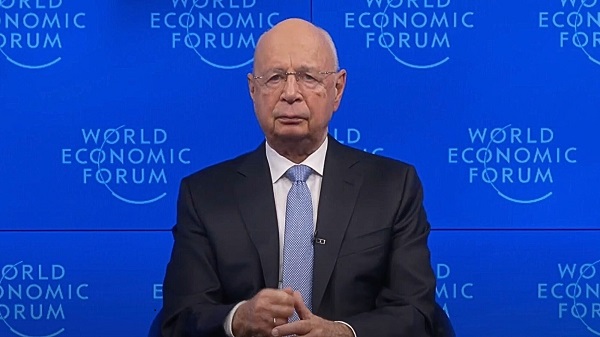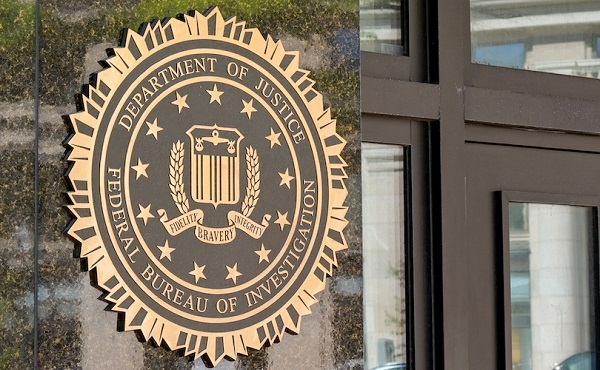Censorship Industrial Complex
WEF Pushes Public-Private Collaboration to Accelerate Digital ID and Censorship

|
|
Censorship Industrial Complex
Global media alliance colluded with foreign nations to crush free speech in America: House report

From LifeSiteNews
By Dan Frieth
The now-defunct ad coalition GARM shared insider data and urged boycotts of Twitter to punish non-compliance with its ‘harmful content’ standards, a US House Judiciary report shows.
A new report from the U.S. House Judiciary Committee has shed light on what it describes as an alarming collaboration between powerful corporations and foreign governments aimed at suppressing lawful American speech.
The investigation focuses on the Global Alliance for Responsible Media (GARM), an initiative founded in 2019 by the World Federation of Advertisers (WFA), which the committee accuses of acting as a censorship cartel.
According to the report, GARM, whose members control about 90 percent of global advertising spending, exploited its market dominance to pressure platforms like Twitter (now X) into compliance with its restrictive content policies.
A copy of the report can be found HERE.
The committee highlighted how GARM sought to “effectively reduce the availability and monetization” of content it deemed harmful, regardless of public demand for free expression.
Documents obtained by the committee reveal direct coordination between GARM and foreign regulators, including the European Commission and Australia’s eSafety commissioner.
In one exchange, a European bureaucrat encouraged advertisers to leverage their influence to “push Twitter to deliver on GARM asks.”

Similarly, Australia’s eSafety Commissioner Julie Inman Grant praised GARM’s “significant collective power in helping to hold the platforms to account” and sought updates to “take into account in our engagement and regulatory decisions.”

Robert Rakowitz, GARM’s co-founder and initiative lead, expressed a chilling goal in private correspondence, stating that silencing President Donald Trump was his “main thing” and likening the president’s speech to a “contagion” he aimed to contain “to protect infection overall.”

The report outlines how GARM distributed previously unavailable non-public information about Twitter’s adherence to its standards, fully aware this would prompt advertisers to boycott the platform if it failed to conform. According to the House report, Rakowitz admitted that this information sharing was designed to encourage members not to advertise on Twitter.
He went as far as to draft statements urging GARM members to halt advertising on the platform, telling colleagues he had gone “as close as possible” to saying Twitter “is unsafe, cease and desist.”
Despite the widespread impact of GARM’s actions, including what the committee describes as coerced “concessions” from platforms, internal polling circulated within GARM showed that “66 percent of American consumers valued free expression over protection from harmful content.”
Still, GARM pressed ahead with efforts to “eliminate all categories of harmful content in the fastest possible timing,” ignoring consumer preferences.
Even after GARM dissolved in 2024 amid legal challenges, similar efforts persisted.
A new coalition led by Dentsu and The 614 Group briefly attempted to revive GARM’s mission before disbanding under scrutiny. Gerry D’Angelo, a former GARM leader, reflected on the initiative’s overreach, stating, “Did we go too far in those first rounds of exclusionary restrictions? I would say yes.”
The Judiciary Committee warns that despite GARM’s downfall, the threat of collusion to stifle free expression remains.
It pledged to continue oversight to defend “the fundamental principles” of the Constitution and ensure that markets, not coordinated censorship efforts, shape the flow of information in the digital age.
Reprinted with permission from Reclaim The Net.
Censorship Industrial Complex
FBI urged to release withheld records on Hunter Biden laptop, other ‘Twitter Files’

From LifeSiteNews
By Dan Frieth
Judicial Watch initiated the lawsuit in April 2023, targeting the DOJ, the Department of Homeland Security, and the Office of the Director of National Intelligence
A hearing took place Wednesday, before U.S. District Judge Sparkle L. Sooknanan, in a Freedom of Information Act (FOIA) lawsuit brought by Judicial Watch against the Department of Justice (DOJ).
The case seeks records related to the “Twitter Files,” particularly those involving Hunter Biden’s laptop and allegations of censorship.
The only matter still pending is the FBI’s withholding of records detailing two meetings between agency officials and Twitter representatives from the Biden administration.
Judicial Watch initiated the lawsuit in April 2023, targeting the DOJ, the Department of Homeland Security, and the Office of the Director of National Intelligence.
The legal action followed the FBI’s failure to respond to a December 2022 FOIA request for communications between FBI personnel and key Twitter figures, including Yoel Roth, Vijaya Gadde, and Jim Baker, from June 2020 to December 2022.
These individuals were involved in discussions about suppressing the New York Post’s Hunter Biden laptop story, as disclosed in journalist Matt Taibbi’s December 2022 “Twitter Files.”
Tom Fitton, president of Judicial Watch, expressed strong disappointment: “It is frustrating beyond belief for Judicial Watch to have to go to federal court for basic information on Biden’s abuse of the FBI, using Twitter to censor and monitor Americans.”
Through a mix of FOIA requests and legal action, Judicial Watch continues to document extensive censorship efforts that affected tens of millions of Americans.
In November 2024, it obtained DHS records showing a widespread campaign, by both government and private groups, to police and suppress social media posts concerning election fraud in 2020.
Additional records from June 2024, released through Judicial Watch litigation, revealed that just before and after the 2020 election, state officials flagged alleged misinformation and sent it to entities like the Center for Internet Security, CISA, and the Election Integrity Partnership (EIP), a DHS-backed nonprofit known for targeting online election discourse.
In December 2023, DHS documents exposed coordination between CISA and the EIP to conduct “real-time narrative tracking” on major social media platforms in the run-up to the 2020 vote.
Similar records surfaced in November 2023, showing EIP’s influence over platforms such as Google, Twitter, Facebook, TikTok, Pinterest, and Reddit to suppress “disinformation.”
Reprinted with permission from Reclaim The Net.
-

 Business1 day ago
Business1 day agoLatest shakedown attempt by Canada Post underscores need for privatization
-

 Business1 day ago
Business1 day agoWhy it’s time to repeal the oil tanker ban on B.C.’s north coast
-

 Aristotle Foundation2 days ago
Aristotle Foundation2 days agoHow Vimy Ridge Shaped Canada
-

 Alberta1 day ago
Alberta1 day agoPierre Poilievre – Per Capita, Hardisty, Alberta Is the Most Important Little Town In Canada
-

 Alberta1 day ago
Alberta1 day agoAlberta Provincial Police – New chief of Independent Agency Police Service
-

 Energy1 day ago
Energy1 day agoIf Canada Wants to be the World’s Energy Partner, We Need to Act Like It
-

 MxM News1 day ago
MxM News1 day agoUPenn strips Lia Thomas of women’s swimming titles after Title IX investigation
-

 International2 days ago
International2 days agoCBS settles with Trump over doctored 60 Minutes Harris interview







